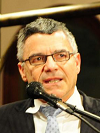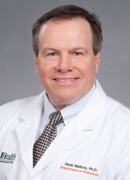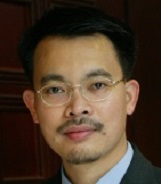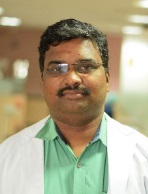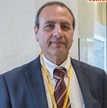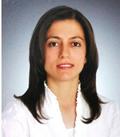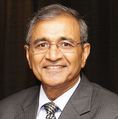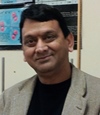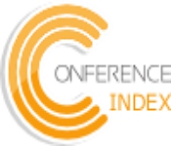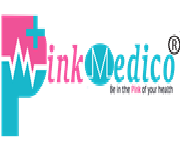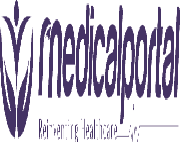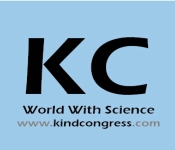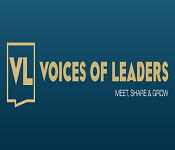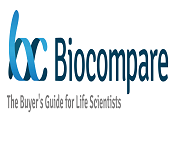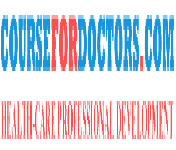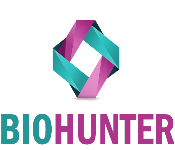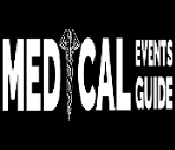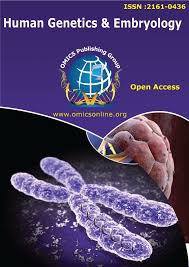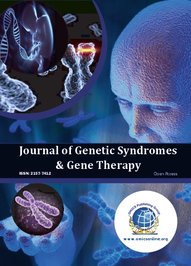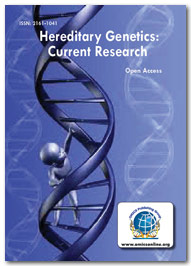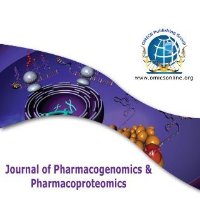Theme: New insights into the Human Genetics and Genome Biology
Human Genetics Meet 2018
- About Conference
- Sessions/Tracks for Human Genetics Meet 2018
- Market Analysis
- New Updates-Genetics & Molecular Biology
Human Genetics Meet 2018
Human Genetics Meet 2018 invites all the participants from all over the world to attend 4th World Congress on Human Genetics and Genetic Diseases during April 19-20, 2018, Dubai, UAE which includes prompt keynote presentations, Oral talks, Poster presentations and Exhibitions
Human genetics is the field of biology and genetics that studies the structure and function of genes at a molecular level. The study of chromosomes and gene expression of an organism can give insight into heredity, genetic variation, and mutations. This is useful in the study of developmental biology and in understanding and treating genetic diseases. Gene therapy is the therapeutic delivery of nucleic acid polymers into a patient's cells as a drug to treat disease.
Why to attend???
This unique international conference provides a platform for researchers and decision makers in Human Genetics and Genetic Diseases to present their latest findings and learn about all the important developments in Human Genetics and Genetic Diseases. Many scientists and world's renowned experts will participate in the conference. Throughout the course of the Two days conference, you will have the opportunity to both network and hear leaders from the international academic and corporate Human Genetics and Genetic Diseases communities. This conference seek to bring all such scientist, Noble Laureate, researcher, research scholar, students and people together who are involved in this field and provide them to discuss about their innovation, exchange ideas and interaction with each other.
Why Dubai?
Eastern Biotech & Life Sciences based at DuBiotech, Dubai, is the first company in the Middle East to offer comprehensive genetic testing services. We have carefully examined the biotechnological horizon to identify the genetic tests most relevant to this region and offer them directly to the people of the Middle East.
ME Conferences selected UAE to conduct its conference on “Human Genetics and Genetics Diseases” so as to provide the speakers and participants with an opportunity for interacting and to explore and exchange their ideas globally.
Track 1: Human Genetics
Human genetics study is of inheritance as it occurs in human beings. Human genetics encompasses varieties of overlapping fields including, genomics, cytogenetics, molecular genetics, classical genetics, biochemical genetics, population genetics, developmental genetics, clinical genetics, and genetic counseling. Genes can be the common factor of the qualities of most human-inherited traits.
- Human Genome mapping
- Human Genome sequencing
- The genetics of human personality
- Medical Genetics
- Human genetic clustering
- Genetic differences and inheritance patterns
- Spatial population genomics
Related Conferences: Human Genetics Conferences | Genetics Conferences | Molecular Biology Congress | Biotechnology Meetings | Immune Cell Therapy Events
8th Bacterial Diseases Conference August 06-08, 2018, Dubai, UAE; Biomarkers Conference July 16-17, 2018, Dubai, UAE; 18th Medicinal Conference July 19-21, 2018, Dubai, UAE;7th Gene Therapy Conference March 15-16, 2018, London, UK; 9th Tissue Engineering Conference April 23-24, 2018, Los Vegas, USA; Organ Transplantation congress August 24-25, 2018, Tokyo, Japan; Bioinformatics Expo November 02-03, 2018, Columbus, USA; World Biotechnology Congress, June 25-27, 2018, Dubai, UAE; Pediatrics Conference, Jan-29-Feb01, 2018, Dubai, UAE; Advanced Diabetes Conference, April 27-28, 2018, Abu Dhabi, UAE; Biotechnology Conference, March 05-07, 2018, Dubai, UAE
Related Associations or Societies:
European Society Of Human Genetics, American Society of Human Genetics ,German Genetics Society,International Society of Genetic Genealogy,The American Society of Hematology,ASGCT - American Society of Gene & Cell Therapy, International Society of Genetic Genealogy
Track 2: Genetic Diseases
Genetic diseases may be hereditary, passed down from the parents genes. In other genetic diseases, defects may be caused by new mutations or changes to the DNA. In that case, the defect will only be passed down if it occurs in the germ line. The same disease such as some forms of cancer may be caused by an inherited genetic condition in some people, by new Hereditary mutations in other people, and mainly by the environmental causes in other people. A genetic disease is a genetic problem caused by one or more abnormalities in the genome, especially a condition that is present from birth congenital. Most genetic diseases are quite rare and affect one person in every several thousands or millions.
- Gene therapy
- Enzyme replacement therapy
- Drug treatments
- RNAi therapies
- Treatment of Allergies and Autoimmune Diseases
Some of the Common Genetic Disorders:
- ADA Immnue Deficiency
- Alzeihmer Disease
- Breast cancer
- cystic Fibrosis
- Down Syndrome
- Duchenne muscular dystrophy
- Ectrodactyly
- Fragile X
- fragile x syndrome
- Gaucher Disease
- Hemophilia
- Hunter syndrome
- Jackson-Weiss Syndrome
- melanoma
- muscular dystrophies
- Neurofibromatosis
- Retinoblastoma
- Severe Combined Immunodeficiency Disorder (SCID)
- Sickle cell anaemia
- Tay-Sachs
- Thalassemia
- Turner syndrome
- Werner syndrome
Related Conferences: Genetic Diseases Conferences | Genetic Diseases meetings | Molecular Biology Congress | Biotechnology Conferences
2nd Radiology and Oncology Congress July 16-17, 2018, Dubai, UAE; Biomarkers Conference July 16-17, 2018, Dubai, UAE; 3rd Stem Cell Conference, July 19-20, 2018, Dubai, UAE; World Biotechnology Congress, June 25-27, 2018, Dubai, UAE; 7th Gene Therapy Conference March 15-16, 2018, London, UK; 9th Tissue Science Conference July 13-14, 2018, Sydney, Australia; 2nd Cell Metabolism Summit September 19-20, 2018, Philadelphia, USA; 2nd Cell Metabolism Summit September 19-20, 2018, Philadelphia, USA; 4th synthetic biology Conference June11-12, Rome, Italy; World Biotechnology Congress, June 25-27, 2018, Dubai, UAE; Pediatrics Conference, Jan-29-Feb01, 2018, Dubai, UAE; Advanced Diabetes Conference, April 27-28, 2018, Abu Dhabi, UAE; World Vaccines Congress, June28-30, 2018, Dubai, UAE; Biotechnology Conference, March 05-07, 2018, Dubai, UAE; World Biotechnology Congress, June 25-27, 2018, Dubai, UAE
Related Associations or Societies:
Association of Genetic Nurses and Counselors,International Society for Computational Biology: ISCB, The Genetics Society of Japan,Genetics Society of Canada,The UCLA Institute for Society and Genetics, Reproductive Biology and Genetic society, American Public Health Association,ASGCT - American Society of Gene & Cell Therapy
Track 3: Sickle cell Anaemia
Sickle-cell disorder takes place when someone inherits two bizarre copies of the haemoglobin gene, one from each parent. This gene takes place in chromosome eleven. Several subtypes exist, relying on the exact mutation in every haemoglobin gene. An assault may be activate by using temperature modifications, strain, dehydration, and high altitude. A individual with a unmarried extraordinary reproduction does not commonly have symptoms and is stated to have sickle-cell trait.
-
Signs and symptoms
-
Genetics OF sickle Cell Anaemia
-
Pathophysiology of sickle-cell disease.
-
Diagnosis of Sickle Cell Diseases
Related Conferences:
8th Bacterial Diseases Conference August 06-08, 2018, Dubai, UAE; Biomarkers Conference July 16-17, 2018, Dubai, UAE; Dubai, UAE; 18th Medicinal Conference July 19-21, 2018, Dubai, UAE; 7th Gene Therapy Conference March 15-16, 2018, London, UK; 9th Tissue Engineering Conference April 23-24, 2018, Los Vegas, USA; Organ Transplantation congress August 24-25, 2018, Tokyo, Japan; Bioinformatics Expo November 02-03, 2018, Columbus, USA; World Biotechnology Congress, June 25-27, 2018, Dubai, UAE; Pediatrics Conference, Jan-29-Feb01, 2018, Dubai, UAE; Advanced Diabetes Conference, April 27-28, 2018, Abu Dhabi, UAE; Biotechnology Conference, March 05-07, 2018, Dubai, UAE
Related Associations or Societies:
European Society Of Human Genetics, American Society of Human Genetics ,German Genetics Society,International Society of Genetic Genealogy,The American Society of Hematology,ASGCT - American Society of Gene & Cell Therapy, International Society of Genetic Genealogy
Track 4: Thalassemia
Thalassemia is a genetic disorder which is caused as a result of abnormal haemoglobin production. Thalassemia are genetic disease inherited from a person's dad and mom. There are most important type, alpha thalassemia and beta thalassemia. The severity of alpha and beta thalassemia relies upon on how among the four genes for alpha globin or two genes for beta globin are lacking.
- Signs and symptoms
- Pathophysiology
- Management of thalassemia
Related Conferences:
3rd molecular Medicine Conference April 19-20, 2018, Dubai, UAE; 3rd Stem Cell Conference, July 19-20, 2018, Dubai, UAE; 8th Medicinal Conference July 19-21, 2018, Dubai, UAE; 4th synthetic biology Conference June11-12, Rome, Italy; 10th Genomics Conference May 21-23, 2018, Barcelona, Spain; 12th Regenerative Medicine Conference June 04-06, 2018 , Prague, Czech Republic; 13th Tissue Engineering Conference July 13-14, 2018, Paris, France; Bioinformatics Expo November 02-03, 2018, Columbus, USA; Pediatrics Conference, Jan-29-Feb01, 2018, Dubai, UAE; World Biotechnology Congress, June 25-27, 2018, Dubai, UAE; World Vaccines Congress, June28-30, 2018, Dubai, UAE; Biotechnology Conference, March 05-07, 2018, Dubai, UAE; Advanced Diabetes Conference, April 27-28, 2018, Abu Dhabi, UAE
Related Associations or Societies:
ASGCT - American Society of Gene & Cell Therapy, The World Medical Association, National Society of Genetic Counselors, The Society for Molecular Biology & Evolution, International Society for Computational Biology: ISCB, American Public Health Association, Genetics Society – kclsu, Genetics Society of Canada
Track 5: Evolutionary genetics
Evolutionary genetics is the broad field of studies that resulted from the integration of genetics and Darwinian evolution, called the modern synthesis. The force of mutation is the ultimate source of new genetic variation within populations. Although most mutations are neutral with no effect on fitness or harmful, some mutations have a small, positive effect on fitness and these variants are raw materials for gradualist adaptive evolution. Within finite populations, random genetic drift and natural selection affect the mutational variation. Natural selection is the only evolutionary force which can produce adaptation, the fit between organism and environment, or conserve genetic states over very long periods of time in the face of the dispersive forces of mutation and drift
- Mutation and polymorphism
- Admixture and ancestry analysis
- Natural selection and adaptation
- Origin of life in a digital microcosm
- Genetic diversity and phylogenetic study of Humans
Related Conferences: Evolutionary genetics Conferences | Evolutionary genetics Congress | Molecular Biology Events | Biotechnology Meetings
18th Medicinal Conference July 19-21, 2018, Dubai, UAE; Rare Diseases Congress August 27-29, 2018, Dubai, UAE; 2nd Radiology and Oncology Congress July 16-17, 2018, Dubai, UAE; 3rd Stem Cell Conference, July 19-20, 2018, Dubai, UAE; 9th Tissue Engineering Conference April 23-24, 2018, Los Vegas, USA; 20th biotechnology Congress March 05-07, 2018, London, UK; 9th Tissue Science Conference July 13-14, 2018, Sydney, Australia; 7th Gene Therapy Conference March 15-16, 2018, London, UK; Pediatrics Conference, Jan-29-Feb01, 2018, Dubai, UAE; World Vaccines Congress, June28-30, 2018, Dubai, UAE; Biotechnology Conference, March 05-07, 2018, Dubai, UAE; Advanced Diabetes Conference, April 27-28, 2018, Abu Dhabi, UAE; World Biotechnology Congress, June 25-27, 2018, Dubai, UAE; Pediatrics Conference, Jan-29-Feb01, 2018, Dubai, UAE
Related Associations or Societies:
German Genetics Society, International Society for Forensic Society, International Society of Nurses in Genetics, Preimplantation Genetic Diagnosis International Society, International Mammalian Genome Society, The American Society of Hematology, American College of Medical Genetics and Genomics (ACMG), Preimplantation Genetic Diagnosis International Society
Track 6: Molecular Biology
Molecular biology is the study of molecular underpinnings of the processes of replication, transcription, translation, and cell function. Molecular biology concerns the molecular basis of biological activity between the biomolecules in various systems of a cell, gene sequencing and this includes the interactions between the DNA, RNA and proteins and their biosynthesis. In molecular biology the researchers use specific techniques native to molecular biology, increasingly combine these techniques and ideas from the genetics and biochemistry.
- Macromolecule blotting and probing
- Role of Molecular Biology in Cancer Treatment
- Molecular cloning
- Central dogma of molecular biology
- Protein interaction prediction
- Protein structure prediction
Related Conferences: Molecular Biology Conferences | Genetics Conferences | Molecular Biology Congress | Biotechnology Meetings
3rd molecular Medicine Conference April 19-20, 2018, Dubai, UAE; 3rd Stem Cell Conference, July 19-20, 2018, Dubai, UAE; 18th Medicinal Conference July 19-21, 2018, Dubai, UAE; 4th synthetic biology Conference June11-12, Rome, Italy; 10th Genomics Conference May 21-23, 2018, Barcelona, Spain; 12th Regenerative Medicine Conference June 04-06, 2018 , Prague, Czech Republic; 13th Tissue Engineering Conference July 13-14, 2018, Paris, France; Bioinformatics Expo November 02-03, 2018, Columbus, USA; Pediatrics Conference, Jan-29-Feb01, 2018, Dubai, UAE; World Biotechnology Congress, June 25-27, 2018, Dubai, UAE; World Vaccines Congress, June28-30, 2018, Dubai, UAE; Biotechnology Conference, March 05-07, 2018, Dubai, UAE; Advanced Diabetes Conference, April 27-28, 2018, Abu Dhabi, UAE
Related Associations or Societies:
ASGCT - American Society of Gene & Cell Therapy, The World Medical Association, National Society of Genetic Counselors, The Society for Molecular Biology & Evolution, International Society for Computational Biology: ISCB, American Public Health Association, Genetics Society – kclsu, Genetics Society of Canada
Track 7: Gene Mutation
In biology, a mutation is the permanent alteration of the nucleotide sequence of the genome of an organism, virus, or extra chromosomal DNA or other genetic elements. Mutations result from errors during DNA replication or other types of damage to DNA, which then may undergo error-prone repair or cause an error during other forms of repair, or else may cause an error during replication translation synthesis. Mutations may also result from insertion or deletion of segments of DNA due to mobile genetic elements. Mutations may or may not produce discernible changes in the observable characteristics phenotype of an organism. Mutations play a part in both normal and abnormal biological processes including: evolution, cancer, and the development of the immune system, including functional diversity. The genomes of RNA viruses are based on RNA rather than DNA. The RNA viral genome can be double stranded DNA or single stranded. In some of these viruses such as the single stranded human immunodeficiency virus replication occurs quickly and there are no mechanisms to check the genome for accuracy.
- Induced Mutations
- Site-directed mutagenesis
- Next generation panel sequencing
- Are There Different Kinds of Aging
- autoinflammatory disease genes in gene mutation
Related Conferences: Gene Mutation Conferences | Gene Mutation Congress | Molecular Biology Congress
3rd Stem Cell Conference, July 19-20, 2018, Dubai, UAE; 2nd Cell therapy Summit November 09-10, 2018, Atlanta, USA; 20th biotechnology Congress March 05-07, 2018, London, UK; Organ Transplantation congress August 24-25, 2018, Tokyo, Japan; 4th synthetic biology Conference June11-12, Rome, Italy; 9th Tissue Science Conference July 13-14, 2018, Sydney, Australia; Pediatrics Conference, Jan-29-Feb01, 2018, Dubai, UAE; World Biotechnology Congress, June 25-27, 2018, Dubai, UAE; World Vaccines Congress, June28-30, 2018, Dubai, UAE; Advanced Diabetes Conference, April 27-28, 2018, Abu Dhabi, UAE; Biotechnology Conference, March 05-07, 2018, Dubai, UAE
Related Associations or Societies:
American Public Health Association, Texas Genetics Society, The Genetics Society of Japan, The International Behavioral and Neural Genetics Society, British Society for Genetic Medicine, The UCLA Institute for Society and Genetics, Genetics Society – kclsu
Track 8: Molecular Genetics
Molecular genetics is the sector of biology that research the structure and characteristic of genes at a molecular stage and hence employs strategies of each molecular biology and genetics. The study of chromosomes and gene expression of an organism can give insight into heredity, genetic variant, and mutations. This is useful in the observe of Developmental Biology and in expertise and treating genetic illnesses.
- DNA replication stress and cancer chemotherapy
- Gene therapy
- The Human Genome Project
- Viral Infection and Apoptosis
- Role of Non-Coding RNAs in the Etiology of Bladder Cancer
Related Conferences: Molecular Genetics Conferences | Molecular Genetics Events | Molecular Biology Congress | Biotechnology Meetings
3rd Stem Cell Conference, July 19-20, 2018, Dubai, UAE; 2nd Cell therapy Summit November 09-10, 2018, Atlanta, USA; 20th biotechnology Congress March 05-07, 2018, London, UK; Organ Transplantation congress August 24-25, 2018, Tokyo, Japan; 4th synthetic biology Conference June11-12, Rome, Italy; 9th Tissue Science Conference July 13-14, 2018, Sydney, Australia; Pediatrics Conference, Jan-29-Feb01, 2018, Dubai, UAE; World Biotechnology Congress, June 25-27, 2018, Dubai, UAE; World Vaccines Congress, June28-30, 2018, Dubai, UAE; Advanced Diabetes Conference, April 27-28, 2018, Abu Dhabi, UAE; Biotechnology Conference, March 05-07, 2018, Dubai, UAE
Related Associations or Societies:
The International Behavioral and Neural Genetics Society, Primary Care Genetics Society: PCGS, Association for Clinical Genetic Science, Genetics Society of Thailand, Indian Society of Human Genetics, Genetics Society of Canada, The Society for Molecular Biology & Evolution
Track 9: Bioinformatics
Bioinformatics is both an umbrella term for the body of biological studies that use computer programming as part of their methodology, as well as a reference to specific analysis "pipelines" that are repeatedly used, particularly in the field of genomics. Common uses of bioinformatics include the identification of candidate genes and single nucleotide polymorphisms. Often, such identification is made with the aim of better understanding the genetic disease, unique adaptations, and desirable properties in agricultural species, or differences between populations. In a less formal way, bioinformatics also tries to understand the organizational principles within nucleic acid and protein sequences, called proteomics.
- Methods/tools for variant calling in human genomes
- Genome sequencing and assembly
- Methods for data integration
- Novel bioinformatics/computational tools and methods
- Analysis of mutations in cancer
- Computational biomodeling
Commonly used bioinformatics Tools
Related Conferences: Bioinformatics Conferences | Bioinformatics Expo | Molecular Biology Congres | Biotechnology Meetings
8th Bacterial Diseases Conference August 06-08, 2018, Dubai, UAE; 18th Medicinal Conference July 19-21, 2018, Dubai, UAE; 9th Tissue Engineering Conference April 23-24, 2018, Los Vegas, USA; 4th synthetic biology Conference June11-12, Rome, Italy; 10th Genomics Conference May 21-23, 2018, Barcelona, Spain; 6th Integrative Biology Conference May 21-23, 2018, Barcelona, Spain; Pediatrics Conference, Jan-29-Feb01, 2018, Dubai, UAE; World Vaccines Congress, June28-30, 2018, Dubai, UAE; Biotechnology Conference, March 05-07, 2018, Dubai, UAE; Advanced Diabetes Conference, April 27-28, 2018, Abu Dhabi, UAE; World Biotechnology Congress, June 25-27, 2018, Dubai, UAE
Related Associations or Societies:
European Society Of Human Genetics, The International Behavioral and Neural Genetics Society, Genetics Society – kclsu, Texas Genetics Society, American Public Health Association, European Society Of Human Genetics, The Society for Molecular Biology & Evolution
Track 10: Molecular Modeling
Molecular modeling encompasses all methods, theoretical and computational, used to model or mimic the behavior of molecules. The methods are used in the fields of computational chemistry, drug design, computational biology and materials science to study molecular systems ranging from small chemical systems to large biological molecules and material assemblies. The simplest calculations can be performed by hand, but inevitably computers are required to perform molecular modeling of any reasonably sized system. The common feature of molecular modeling methods is the atomistic level description of the molecular systems.
- Differential processing in modality-specific Mauthner cell dendrites.
- Molecular docking
- Molecular Modelling of Peptide-Based Materials for Biomedical Applications
- Cheminformatics
- Formal Models of Biological Systems
Related Conferences: Molecular Modeling Conferences | Molecular Modeling Events | Molecular Biology Congress | Biotechnology Meetings
8th Bacterial Diseases Conference August 06-08, 2018, Dubai, UAE; 18th Medicinal Conference July 19-21, 2018, Dubai, UAE; 9th Tissue Engineering Conference April 23-24, 2018, Los Vegas, USA; 4th synthetic biology Conference June11-12, Rome, Italy; 10th Genomics Conference May 21-23, 2018, Barcelona, Spain; 6th Integrative Biology Conference May 21-23, 2018, Barcelona, Spain; Pediatrics Conference, Jan-29-Feb01, 2018, Dubai, UAE; World Vaccines Congress, June28-30, 2018, Dubai, UAE; Biotechnology Conference, March 05-07, 2018, Dubai, UAE; Advanced Diabetes Conference, April 27-28, 2018, Abu Dhabi, UAE; World Biotechnology Congress, June 25-27, 2018, Dubai, UAE
Related Associations or Societies:
The Society for Molecular Biology & Evolution, The Genetics Society of Japan, Primary Care Genetics Society: PCGS, Genetics Society of Thailand, German Genetics Society, Reproductive Biology and Genetic society, European Society Of Human Genetics
Track 11: Gene Sequencing
DNA sequencing is the process of determining the precise order of nucleotides within a DNA molecule. It includes any method or technology that is used to determine the order of the four bases is: adenine, guanine, cytosine, and thymine, in a strand of DNA. The advent of rapid DNA sequencing methods has greatly accelerated biological and medical research and discovery. Knowledge of DNA sequences has become indispensable for basic biological research, and in numerous applied fields such as medical diagnosis, biotechnology, forensic biology, virology and Primate systematics. The rapid speed of sequencing attained with modern DNA sequencing technology has been instrumental in the sequencing of complete DNA sequences, or genomes of numerous types and species of life, including the human genome and other complete DNA sequences of many animal, plants, and microbial species.
- Next-Generation Gene Sequencing
- The Impact of Hereditary Cancer Gene panels on Clinical Care
- gene and protein expression across multiple studies and organisms
- Evaluation of whole genome sequencing
- Computational Challenges of gene Sequencing
Related Conferences: Gene Sequencing Conferences | Gene Sequencing Events | Molecular Biology Congress | Biotechnology Meetings
Rare Diseases Congress August 27-29, 2018, Dubai, UAE; 8th Bacterial Diseases Conference August 06-08, 2018, Dubai, UAE; 3rd molecular Medicine Conference April 19-20, 2018, Dubai, UAE; 3rd Stem Cell Conference, July 19-20, 2018, Dubai, UAE; 9th Tissue Engineering Conference April 23-24, 2018, Los Vegas, USA; 10th Genomics Conference May 21-23, 2018, Barcelona, Spain; 2nd Cell Metabolism Summit September 19-20, 2018, Philadelphia, USA; 12th Regenerative Medicine Conference June 04-06, 2018 , Prague, Czech Republic; World Vaccines Congress, June28-30, 2018, Dubai, UAE; Biotechnology Conference, March 05-07, 2018, Dubai, UAE; Advanced Diabetes Conference, April 27-28, 2018, Abu Dhabi, UAE
Related Associations or Societies:
The World Medical Association, National Society of Genetic Counselors, The Society for Molecular Biology & Evolution, International Society for Computational Biology: ISCB, American Public Health Association,ASGCT - American Society of Gene & Cell Therapy,
Track 12:Pharmacogenetics
Pharmacogenetics is the study of germ line mutations, the single-nucleotide polymorphisms affecting genes coding for liver enzymes responsible for drug deposition and pharmacokinetics, whereas pharmacogenomics refers to somatic mutations in tumoral DNA leading to alteration in drug response KRAS mutations in patients treated with anti-Her1 biologics. Pharmacogenetics is an inherited genetic difference in drug metabolic pathways which can affect individual responses to drugs, both in terms of therapeutic effect as well as adverse effects. The term Pharmacogenetics is often used interchangeably with the term pharmacogenomics which also investigates the role of acquired and inherited genetic differences in relation to drug response and drug behavior through a systematic examination of genes, gene products, and inter- and intra-individual variation in gene expression and function.
- Functional studies of associated variants or loci
- Genome-wide association studies
- Candidate genes/regions and fine mapping
- Clinical Pharmacogenetics
- pharmacogenetics and drug-drug interactions
- Pharmacogenetics in Cardiovascular Medicine
- Pharmacoepigenetics and Toxicoepigenetics
Related Conferences: Pharmacogenetics Conferences | Pharmacogenetics Events | Molecular Biology Congress | Biotechnology Meetings
18th Medicinal Conference July 19-21, 2018, Dubai, UAE; 2nd Radiology and Oncology Congress July 16-17, 2018, Dubai, UAE; Biomarkers Conference July 16-17, 2018, Dubai, UAE; 4th synthetic biology Conference June11-12, Rome, Italy; 6th Integrative Biology Conference May 21-23, 2018, Barcelona, Spain; Stem Cell Biology Congress September 03-04, 2018, Tokyo, Japan; 2nd cell Signaling Summit September 19-20 2018, Philadelphia, USA; 9th Tissue Science Conference July 13-14, 2018, Sydney, Australia; World Biotechnology Congress, June 25-27, 2018, Dubai, UAE; Advanced Diabetes Conference, April 27-28, 2018, Abu Dhabi, UAE; Pediatrics Conference, Jan-29-Feb01, 2018, Dubai, UAE; World Vaccines Congress, June28-30, 2018, Dubai, UAE; Biotechnology Conference, March 05-07, 2018, Dubai, UAE
Related Associations or Societies:
Primary Care Genetics Society: PCGS, Indian Society of Human Genetics, Genetics Society of Canada, The Society for Molecular Biology & Evolution, The American Society of Hematology, International Society for Forensic Society, Association of Genetic Nurses and Counselors, International Society of Genetic Genealogy
Track 13: Immunogenetics
Immunogenetics is the branch of medical research that explores the relationship between the immune system and genetics. Autoimmune diseases, such as type 1 diabetes, are complex genetic traits which result from defects in the immune system. Identification of genes defining the immune defects may identify new target genes for therapeutic approaches. Alternatively, genetic variations can also help to define the immunological pathway leading to disease.
- The immunogenetics of Neurological Disease
- Immune-suppressive effects of interleukin-6
- Bone involvement in monogenic autoinflammatory syndromes
- Immunoglobulin genotypes and cognitive functions
- Mechanisms behind TB, HBV, and HIV chronic infections
Related Conferences: Immunogenetics Conferences | Molecular Biology Congress | Biotechnology Meetings
2nd Radiology and Oncology Congress July 16-17, 2018, Dubai, UAE; 3rd molecular Medicine Conference April 19-20, 2018, Dubai, UAE; 8th Bacterial Diseases Conference August 06-08, 2018, Dubai, UAE; 3rd Stem Cell Conference, July 19-20, 2018, Dubai, UAE; 10th Genomics Conference May 21-23, 2018, Barcelona, Spain; 6th Integrative Biology Conference May 21-23, 2018, Barcelona, Spain; Bioinformatics Expo November 02-03, 2018, Columbus, USA; 13th Tissue Engineering Conference July 13-14, 2018, Paris, France; Biotechnology Conference, March 05-07, 2018, Dubai, UAE; Advanced Diabetes Conference, April 27-28, 2018, Abu Dhabi, UAE; World Biotechnology Congress, June 25-27, 2018, Dubai, UAE
Related Associations or Societies:
Association for Clinical Genetic Science, Primary Care Genetics Society: PCGS, Indian Society of Human Genetics, International Society of Genetic Genealogy,The Society for Molecular Biology & Evolution,German Genetics Society
Track 14: Epigenetics
Epigenetics are stable heritable traits that cannot be explained by changes in DNA sequence. Epigenetics often refers to changes in a chromosome that affect gene activity and expression, but can also be used to describe any heritable phenotypic change that does not derive from a modification of the genome, such as prions. Such effects on cellular and physiological phenotypic traits may result from external or environmental factors, or be part of normal developmental program. Gene expression can be controlled through the action of repressor proteins that attach to silencer regions of the DNA. These epigenetic changes may last through cell divisions for the duration of the cell's life, and may also last for multiple generations even though they do not involve changes in the underlying DNA sequence of the organism; instead, non-genetic factors cause the organism's genes to behave or "express themselves" differently.
- Structure and Epigenetic Regulation of Chromatin Fibers
- DNA methylation
- X-inactivation
- Histone modification
- Basics of Epigenetic Control-Primer in Genetics and Genomics
Related Conferences: Epigenetics Conferences | Genetics Congress | Biotechnology Meetings
8th Bacterial Diseases Conference August 06-08, 2018, Dubai, UAE; 3rd Stem Cell Conference, July 19-20, 2018, Dubai, UAE; 4th synthetic biology Conference June11-12, Rome, Italy; 2nd Cell Metabolism Summit September 19-20, 2018, Philadelphia, USA; 6th Integrative Biology Conference May 21-23, 2018, Barcelona, Spain; Organ Transplantation congress August 24-25, 2018, Tokyo, Japan; Biotechnology Conference, March 05-07, 2018, Dubai, UAE; Advanced Diabetes Conference, April 27-28, 2018, Abu Dhabi, UAE; Pediatrics Conference, Jan-29-Feb01, 2018, Dubai, UAE
Related Associations or Societies:
The Genetics Society of Japan, American Public Health Association, National Society of Genetic Counselors, International Mammalian Genome Society, British Society of Genetic Medicine, International Federation of Human Genetics Societies, Genetics society of America
Track 15: Translational Medicine
Translational medicine is a rapidly growing discipline in biomedical research and aims to expedite the discovery of new diagnostic tools and treatments by using a multi-disciplinary, highly collaborative; "bench-to-bedside" approach. Within public health, translational medicine is focused on ensuring that proven strategies for disease treatment and prevention are actually implemented within the community. One prevalent description of translational medicine, first introduced by the Institute of Medicine's Clinical Research Roundtable, highlights two roadblocks that is distinct areas in need of improvement the first translational block (T1) prevents basic research findings from being tested in a clinical setting; the second translational block (T2) prevents proven interventions from becoming standard practice. The National Center for Advancing Translational Science (NCATS) was established within the NIH to "transform the translational science process so that new treatments and cures for disease can be delivered to patients faster.
- Xenotransplantation
- Allogeneic hematopoietic cell transplantation
- Translational Genomics
Related Conferences: Translational Medicine Conferences | Molecular Biology Congress | Biotechnology Meetings
3rd Stem Cell Conference, July 19-20, 2018, Dubai, UAE; 9th Tissue Engineering Conference April 23-24, 2018, Los Vegas, USA; 12th Regenerative Medicine Conference June 04-06, 2018 , Prague, Czech Republic; 13th Tissue Engineering Conference July 13-14, 2018, Paris, France; 2nd cell Signaling Summit September 19-20 2018, Philadelphia, USA; 20th biotechnology Congress March 05-07, 2018, London, UK; 9th Tissue Science Conference July 13-14, 2018, Sydney, Australia; Pediatrics Conference, Jan-29-Feb01, 2018, Dubai, UAE; World Biotechnology Congress, June 25-27, 2018, Dubai, UAE; World Vaccines Congress, June28-30, 2018, Dubai, UAE
Related Associations or Societies:
British Society of Genetic Medicine, The Society for Molecular Biology & Evolution, Association for Clinical Genetic Science,Primary Care Genetics Society: PCGS, The American Society of Hematology,American Society of Gene & Cell Therapy
Track 16:Stem cell Transplantation
Hematopoietic stem cell transplantation is the transplantation of multipotent hematopoietic stem cells, usually derived from bone marrow, peripheral blood, or umbilical cord blood. It may be autologous the patient's own stem cells are used, allogeneic the stem cells come from a donor or syngeneic from an identical twin. It is a medical procedure in the field of hematology, most often performed for patients with certain cancers of the blood or bone marrow, such as multiple myeloma or leukemia. In these cases, the recipient's immune system is usually destroyed with radiation or chemotherapy before the transplantation. Infection and graft-versus-host disease are major complications of allogeneic .
Hematopoietic stem cell transplantation remains a dangerous procedure with many possible complications; it is reserved for patients with life-threatening diseases. As survival following the procedure has increased, its use has expanded beyond cancer, such as autoimmune diseases and hereditary skeletal dysplasia’s notably malignant infantile osteoporosis and mucopolysaccharidosis.
- What is the role of apheresis technology in stem cell transplantation
- Linking Race, Cancer Outcomes and Tissue Repair
- Expanding transplantation of patients with a liver cancer without harming allocation
Related Conferences: Stem Cell Conferences | Stem Cell Events | Molecular Biology Congress | Biotechnology Meetings
18th Medicinal Conference July 19-21, 2018, Dubai, UAE; 9th Tissue Engineering Conference April 23-24, 2018, Los Vegas, USA; Stem Cell Biology Congress September 03-04, 2018, Tokyo, Japan; 2nd cell Signaling Summit September 19-20 2018, Philadelphia, USA; 9th Tissue Science Conference July 13-14, 2018, Sydney, Australia; Biotechnology Conference, March 05-07, 2018, Dubai, UAE; World Biotechnology Congress, June 25-27, 2018, Dubai, UAE; World Vaccines Congress, June28-30, 2018, Dubai, UAE; Advanced Diabetes Conference, April 27-28, 2018, Abu Dhabi, UAE
Related Associations or Societies:
International Society for Forensic Society, International Society of Nurses in Genetics, American College of Medical Genetics and Genomics (ACMG), The Genetics Society of Japan, The World Medical Association, The American Society of Hematology
Related Research Institutes
Genetics and Molecular biology Laboratory Equipments
Today’s Market Study of Human Genetics in USA | Europe | Middle East | Asia Pacific
Asia pacific: The global gene expression analysis market is projected to reach USD 5.30 Billion by 2020 from USD 3.39 Billion in 2015, at a CAGR of 9.3% from 2015 to 2020. The primary growth engine in this region is China, which is expected to register a growth rate of 13.2% in the forecast period.
USA: The USA Genetics market is poised to reach USD 19.99 Billion by 2020, growing at a CAGR of 9.9% during the forecast period of 2015 to 2020.
Europe: The Europe genetic testing market is estimated at USD 1.22 billion in 2016, and is projected to reach USD 1.8 billion by 2021, growing with a compound annual growth rate (CAGR) of 8.2% during the forecast period, 2016-2021.
Middle East: The global Human Genetics identification market was valued at an estimated $419.4 million in 2013 and is expected to grow at a CAGR of 13.9% in the next five years.
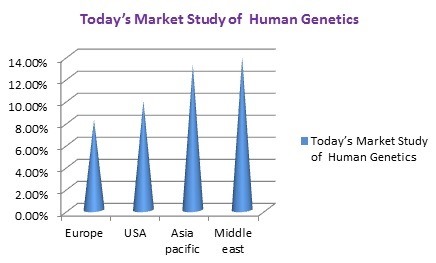
Market Analysis
The global market for Genetic Testing is forecast to reach US$2.4 billion by 2018. Increasing knowledge about the potential benefits in genetic testing is one of the prime reasons for the growth of the genetic testing market. Advancements in the genetic testing space, aging population and a subsequent rise in the number of chronic diseases, and increasing incidence of cancer cases are the other factors propelling growth in the genetic testing market.
The regional analysis includes North America, Europe, Asia Pacific, Middle East and rest of the world.
The global human genetic market expected to grow with a CAGR of more than 10% in the upcoming years. The rise of growth rate is due to increase in technological advancement and various measures taken by US government to expand the national DNA databases.
The Duchene Muscular Dystrophy (DMD) treatment market is expected to change radically by 2019 in the six major pharmaceutical markets
Generic corticosteroids, namely prednisone and deflazacort, remain the current standards of care and contribute to the nascent DMD market, which was estimated at $8.2 million across the 6MM in 2014. However, both the treatment landscape and the DMD market are set to witness tremendous growth—reaching nearly $1 billion by 2019—as a result of the launch of novel mutation-specific drugs in the coming years. However, a large segment of DMD patients are expected to be ineligible for these promising new drugs, leaving vast opportunity for developers to deliver new therapies and for continued growth in the DMD market beyond 2019.
USA: Approximately, more than 24285 members involved in Genetics and related researches.
Europe: Approximately, more than 56083 members involved in Genetics and related researches.
Global: Approximately, 1291100 members involved in Genetics and related researches.
behaviour and decision-making related to genetics and molecular biology, biotechnology, pharmaceuticals, medicals and academia.
Conference on Human Genetics is a much celebrated conference which basically deals with the latest research and developments in the sphere of genetics and molecular biology. This Conference will provide a perfect platform to all the International mix of leading Research Scholars, and Scientists achieved eminence in their field of study, research academicians from the universities and research institutions, industrial research professionals and business associates along with Ph.D. Students to come and inform all the attendees about the latest scientific advancements on the respective sphere
ME Conferences welcomes you to attend the 4th World Congress on Human Genetics & Genetic Diseases during April 19-20, 2018 Dubai, UAE. We cordially invite all the participants who are interested in sharing their knowledge and research in the area of Human Genetics Meet 2018.
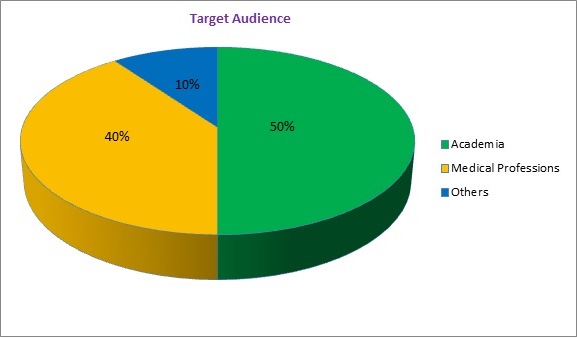
Target Audience
- Human Genetics Students, Scientists
- Human Genetics Researchers
- Human Genetics Faculty
- Human Genetics Associations and Societies
- Human Genetics physicians
- Human Genetics Doctors
- Human Genetics advanced practice registered nurses
- Allied health professionals in the fields of Human Genetics
- Business Entrepreneurs
- Training Institutes
- Software developing companies
Societies in Globe
- European Society of Human Genetics
- American Society of Human Genetics
- American Society of Gene Therapy
- Canadian Association of Genetic Counselors
- British Society for Human Genetics
- Southern African Society for Human Genetics
- East Asian Union of Human Genetics Societies
- Japan Society of Human Genetics
- Genetics Society of Korea
- Human Genetics Society of Australasia (HGSA)
Latest researches in Cancer Genetics: Human Genetics Meet 2018
Breast cancer is as a consequence of complicated interactions between a wide type of genetic variations and our surroundings. The inherited thing of breast cancer hazard is due to a aggregate of unusual versions in genes consisting of BRCA1 and BRCA2 that confer a immoderate risk of the sickness, and many commoner genetic variations that every confer most effective a small chance. The newly recognized danger areas nearly double the range which is probably already identified, thereby bringing the number of recognized commonplace variants associated with breast most cancers to around one hundred eighty.
By combining epidemiological facts with different data from breast tissue, the researchers have been capable of make conceivable predictions of the target genes in the big majority of instances. In addition, they showed for the primary time that those genes are often the same as the ones which can be altered in breast tumours - when a tumour develops, the DNA within the most cancers cells themselves mutates.
Around 70% of all cases of breast cancer are oestrogen-receptor advantageous, which means that the most cancers cells have a selected protein (known as a receptor) that responds to the woman intercourse hormone oestrogen, allowing the tumour to develop. However, no longer all most cancers cells deliver this receptor - those are known as oestrogen-receptor negative. The studies identified genetic regions particularly associated with either oestrogen-receptor effective or oestrogen receptor negative breast most cancers, underscoring the reality that these are biologically awesome cancers that expand otherwise.
New Method to develop Human Cells-Laboratory Technique: Human Genetics Meet 2018
Researchers have grown gamete, which were removed from ovary tissue at their initial stage of development, to the point at which they are ready to be germinate.This could safeguard the pregnancy of girls with cancer ahead of potentially harmful medical treatment, such as chemotherapy. Immature eggs recovered from patients' ovarian tissue could be grown in the lab and stored for later fertilization.
Generally, tumor patients can have a piece of ovary removed before analysis, but re-implanting this tissue can risk reintroducing Tumor.
This research shows that how human eggs develop at various stages, which could benefit the infertility therapeutics and developmental medicine.
Researchers and medical professionals are to expand applicable substances in which eggs could be grown -- known as culture mediums to support individual stage of cell development.
scientists had developed mice eggs to produce live young ones, later on developed human eggs from a relatively next stage of development. This current study is the first time a human egg has been developed in the lab from its earliest stage to full matured cells.
Engineering a new spin for disease diagnostics- A new liquid biopsy platform has been developed to isolate circulating disease biomarkers
Extracellular vesicles are messengers that originate in blood. In cancers, cardiovascular and blood diseases, vesicles delivery particular disease-associated molecules (biomarkers) that can be used to diagnose these illnesses. However, it is problematic to isolate vesicles from blood, due to the fact that they are miniscule particles, ranges from 30-1,000 nanometers in size.
Current strategies of extraction are clinically dull, time-consuming and high priced, with low throughput and bad extract purity. In this research, scientists applied a microfluidic centrifugal method, wherein a spinning rotor generates stress, forcing the patient's blood pattern to go with the flow via microscopic channels of a specifically designed microfluidic chip. The centrifugal force that drives this extraction is similar to the G-force experienced while using a rollercoaster, only loads stronger.
A blood pattern is first added to the chip's inlet, and then the chip is placed into the centrifugal nanoparticle separation and extraction (μCENSE) platform. μCENSE is then loaded into a preferred laboratory benchtop centrifuge and spun. It takes less than 8 mins for the blood and vesicles to separate, and extract may be eliminated from the chip outlet. This is a hundredfold faster than the excessive velocity ultracentrifugal technique that has been used in the previous methods. The μCENSE platform become designed to growth the external pressure discipline inside a smaller radius, minimizing the centrifugal force and time requirements.
As we spin the microfluidic chip, the sample in the inlet begins emigrate or move into this curved channel," stated Chwee Teck Lim, the crew's take a look at lead. "Once there, the centrifugal forces start to separate the smaller vesicles from the bigger particles, due to the fact the forces appearing at the distinctive sized vesicle are distinctive. So, as they pass from inlet to outlet, they start to separate into one of a kind zones. The smaller particles continue to be close to the inner wall of the channel and the larger debris flow towards the outer wall of the channel, and this separates them into two outlets." This procedure is similar to how a separator spins to dispose of cream from the pinnacle of milk.
Overproduction of erythropoietin in blood is lead by inherited mutation
A newly-located hereditary mutation is answerable for an increased production of erythropoietin (EPO) in the blood. This mutation causes a messenger RNA (mRNA) that is not normally concerned in the formation of proteins to be reprogrammed so that it produces EPO, abnormally increasing the variety of crimson blood cells.
In sufferers stricken by erythrocytosis, the crimson blood cell mass (erythrocytes) is highly high. The ailment is commonly brought on by a genetic disease inside the bone marrow, which results in accelerated production of red blood cells.
Using a genome-extensive linkage evaluation and gene sequencing, the researchers observed that every one are affected in own family members lacked a single base within the EPO gene. As the EPO hormone will increase the manufacturing of crimson blood cells, it become possibly that this mutation brought on the disorder.
Overproduction in place of failure
However, the researchers have been to begin with puzzled. This mutation would clearly lead to a lack of feature of the EPO gene, due to the fact the absence of the bottom shifts the analyzing frame of the genetic code, that means that no more EPO protein may be formed. Despite this, the awareness of EPO hormone within the patients' blood measurably accelerated instead of decreased
using the CRISPR technique the research was explained, which allowed the researchers to engineer cells carrying the EPO mutation. There is a 2nd, hidden mRNA inside the EPO gene that isn't generally worried in the production of a protein. As the researchers display, the mutation also results in a shift inside the reading frame of this second mRNA, this time with the result that more biologically lively EPO hormone is produced.
A review of the past and path forward - The coming of age of gene therapy
Gene therapy is designed to introduce genetic material into cells to make amends for or accurate unusual genes. If a mutated gene reasons harm to or spurs the disappearance of a important protein, as an instance, gene therapy can be capable of introduce a ordinary copy of the gene to restore the characteristic of that protein.
The authors targeted on the approaches that have brought the first-rate outcomes in gene therapy so far: 1) direct in vivo management of viral vectors, or the use of viruses to deliver the therapeutic genes into human cells; and 2) the switch of genetically engineered blood or bone marrow stem cells from a patient, changed in a lab, then injected back into the identical affected person.
Originally predicted as a treatment totally for inherited issues, gene therapy is now being carried out to obtained situations which includes most cancers. For example, the engineering of lymphocytes, white blood cells, that can be used within the targeted killing of most cancers cells.
In 2017, a steady circulation of encouraging clinical results showed progress in gene remedies for hemophilia, sickle-cellular disorder, blindness, numerous critical
Inherited neurodegenerative problems, an array of other genetic diseases, and more than one cancers of the bone marrow and lymph nodes.
Three gene treatments were authorised with the aid of the U.S. Food and Drug Administration inside the past year, and lots of extra are beneath active scientific research. The authors appeared to the destiny of gene therapies, and the demanding situations of turning in those complex treatments to patients.
Much of this research has been funded with the aid of NIH, and key advances passed off inside the NIH Clinical Center
Conference Highlights
To share your views and research, please click here to register for the Conference.
To Collaborate Scientific Professionals around the World
| Conference Date | April 19-20, 2018 | ||
| Sponsors & Exhibitors |
|
||
| Speaker Opportunity Closed | Day 1 | Day 2 | |
| Poster Opportunity Closed | Click Here to View | ||
Useful Links
Special Issues
All accepted abstracts will be published in respective Our International Journals.
- Journal of Human Genetics & Embryology
- Journal of Pharmacogenomics & Pharmacoproteomics
- Journal of Genetic Syndromes & Gene Therapy
Abstracts will be provided with Digital Object Identifier by





